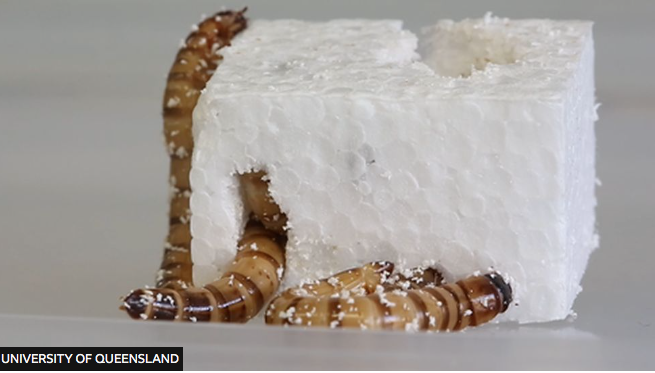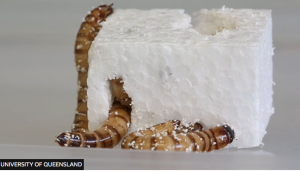Superworms offer plastic recycling
According to Australian scientists, Zophobas morio – commonly known as a superworms offer plastic recycling as they can survive on a diet of polystyrene. This beetle larvae is believed to digest polystyrene with a gut enzyme.
“Superworms are like mini recycling plants, shredding the polystyrene with their mouths and then feeding it to the bacteria in their gut,” Dr Chris Rinke said.
The superworm’s gut can degrade polustyrene and styrene, plastics used in take-out containers, insulation, and car parts. Researchers are hoping to find which enzyme is responsible for degrading these plastics and reproduce it at large scales for recycling large quantities of plastic. The idea is to shred the plastics mechanically, then treat with the enzyme.
“The breakdown products from this reaction can then be used by other microbes to create high-value compounds such as bioplastics,” Dr Rinke said.
It is important to find out how the bacteria in the superworm gut degrades the plastic in a molecular level.
“The scale-up and translation of research like this is always a challenge, which is magnified in the area of plastics by the incredible scale of the problem and the economics in terms of how cheap new plastic is to produce,” Professor Jackson said.


